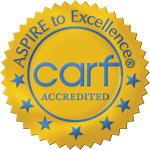Out of all the ways that addictive drugs are used, using needles to inject drugs into the bloodstream can carry the greatest risks to one’s health. While it’s pretty widely known that injecting drugs is associated with hard drug use and high risk for overdose, many people aren’t aware of the range of harmful consequences that can come from just one use of a needle.
Not everyone who injects drugs started out using that way. The transition from ingesting opioids or other drugs through the mouth or nose to injecting them straight into the bloodstream commonly occurs as someone becomes addicted and begins looking for a faster, more potent high. But many who switch to injection use might not have considered the health risks of injecting drugs, which are usually present from the very first time one uses. These risks include dependency, overdose, and minor to very serious infections and diseases.
Injection drug use can easily lead to dependency and overdose
Do only addicts inject drugs? Although needle injection use can be an indicator that someone has an addiction, you don’t have to have an existing addiction to be susceptible to the risks of injection use. All of the consequences we discuss here can happen even to someone who has never used any drug before.
Because there are people whose first use of drugs is through a needle, it’s important to note that one risk of injecting drugs is developing an addiction. Environmental and social factors of injection drug use make it more likely that someone beginning to use addictive substances this way will rapidly develop a substance use disorder.
Injection drug use also carries a high risk of drug overdose. The amount of a substance injected can easily be too much for the body to handle. For more on how overdoses can happen, you might find it helpful to read our post, Drug Overdose: 4 Signs Your Loved One Could Be at Risk.
Bacterial infections from injection drug use are increasingly common
A recent news story out of Kentucky focused on the increase in infective endocarditis cases as a result of the drug epidemic. The story quotes a heart surgeon who calls it “the biggest healthcare crisis that I’ve been a part of.” What makes it so alarming?
Infective endocarditis is caused by bacteria in a dirty needle or on the skin that enters the bloodstream and infects the heart. It’s a serious condition that often requires heart surgery to replace the heart valves that the infection has damaged. Health providers are concerned by the high rate of this infection among drug users who have barely reached adulthood, many being in their late teens or 20s.
Endocarditis is especially dangerous in young drug users because of the care needs that result from heart valve replacement. Those who have valve replacements early in life might have to look forward to more surgeries in the future, when their replacement valves need to be replaced themselves. Many with replacement valves will have to take blood-thinners for the rest of their life in order to prevent blood clots on the valves. The heart surgeon in the WKYT article above said that many of the younger people getting valve replacements lack the stability or responsibility to be trusted to stay on the blood-thinning agents.
Treatment of endocarditis in active drug users poses another problem: continuing to use injection drugs after treatment vastly raises the risk of serious complications, including death. Some drug users in their 20s or 30s have already had one or two surgeries to replace their heart valves, in addition to antibiotic treatments. Surgeons may be less likely to operate after repeat infections as a result of injection drug use. The reason is that successive replacements are more risky, the heart more fragile, and the patient more likely to keep using.
Infective endocarditis is the most serious infection from IV drug use, but there are other infections like cellulitis and staph that require medical care and sometimes IV antibiotic treatment.
Risk of disease transmission from injection drug use
Sharing or reusing needles turns an already risky behavior into a high-risk one. Serious diseases transmitted through the blood can quickly spread throughout groups of people who share needles for injecting drugs. HIV/ AIDS is a life-threatening virus and disorder that affects the immune system and can lead to many other infections and disorders.
To see just how dangerous sharing needles can be, read this story about how shared needle use led to an outbreak of 181 cases of HIV in a small rural community in Indiana. Blood-borne diseases from drug use are becoming a special problem in rural communities because they lack the resources for awareness, prevention, and treatment that more populated areas have. In addition to HIV, hepatitis B and hepatitis C can also be contracted through injection drug use. These diseases can cause serious, life-threatening damage to the liver.
What to do if you’ve injected addictive drugs
If you have injected addictive drugs in the past year, you might be concerned about whether you have any of the infections or diseases discussed in this article. Asking a physician about your risks for bacterial infections or diseases could help determine whether that’s the case. Any unusual symptoms like sudden back pain or stiffness should also indicate a need to contact a hospital or personal physician.
If you’re a current drug user, the best thing to do to avoid these disorders is to not inject drugs. However, those with active addictions to injection drugs will find it difficult to refrain from using. In that case, the best advice you can take is to consider seeking help for addiction. In the meantime, refrain from sharing or reusing needles. Some states have directories of needle exchange programs, where you can dispose of used/ dirty needles in exchange for clean ones. For example, the Kentucky Harm Reduction Coalition provides locations of exchange programs in the state.
Of course, there are risks to using any addictive substance, from developing a dependency to experiencing negative consequences in many different aspects of one’s life. If you or someone you know is struggling with substance use, and especially if injection drug use is a concern, consider seeking help today through a physician or trusted addiction care provider.
If you need more information about injection drug use or help finding treatment for addiction, let us know through the form below.
Stepworks General Contact Form
Basic contact form for Stepworks Recovery Centers.




